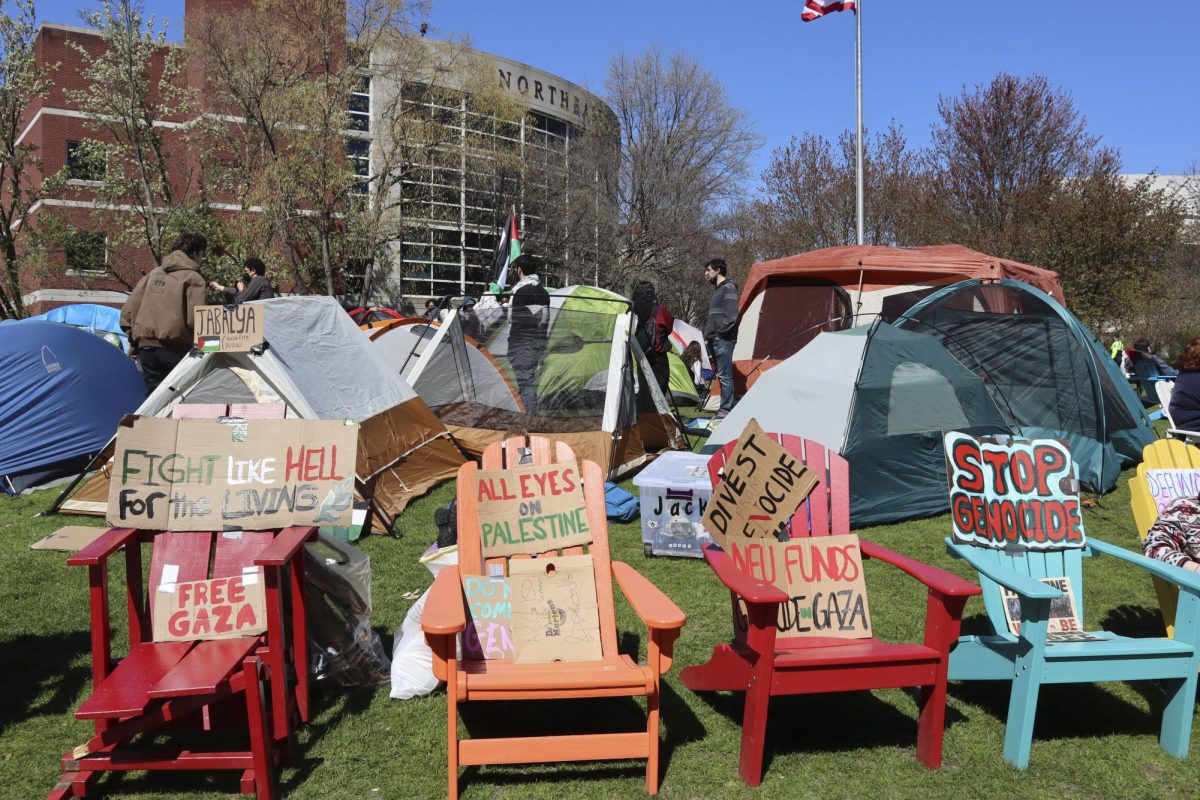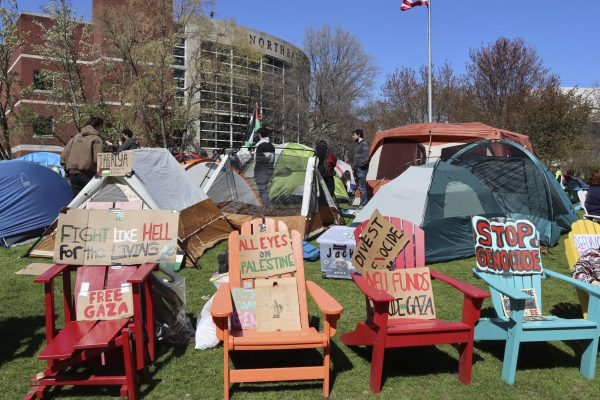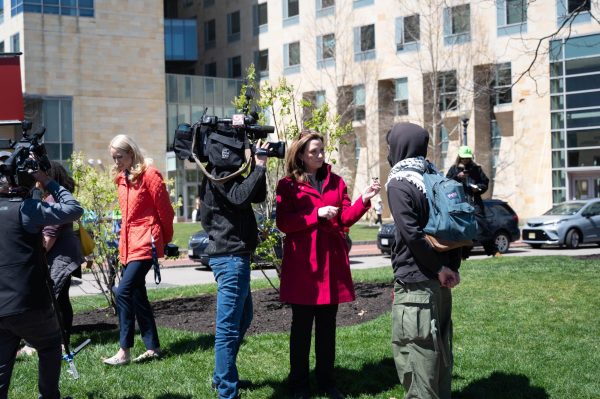Jane Junn tackles Asian Hate with an intersectional approach
October 10, 2021
Addressing a group of Northeastern students and faculty Oct. 7, Jane Junn called upon the experiences of Asian Americans, the intersection of Asian hate and other prevalent social issues.
Junn, a professor of political science and gender and sexuality studies at the University of Southern California, came to Northeastern as part of the university’s “Asia America and the World” lecture series, created in response to an increase in anti-Asian racism during the COVID-19 pandemic.
Throughout her talk, “Amidst Pandemic and Racial Upheaval: Where Asian Americans Fit”, Junn discussed the diversity within the Asian community. She rejected the notion of Asian Americans as a “monolith” and presented the audience with data that showed the unique values of Asian Americans with varying ethnic and cultural backgrounds.
This was eye-opening for students like Claire Blaufox, a fourth-year chemical engineering major.
“Something that was really interesting to me was the breakdown of political leanings amongst specific Asian groups,” Blaufox said. “As a Chinese American myself, I think that I expected to see more traditionalism from Chinese Americans or Asians in general. I think it ties into how the media misrepresents Asian Americans.”
Junn invited members of the audience who identified as Asian or Asian American to speak about their own unique experiences, opening up the floor for a more open-ended conversation.
Junn said that in many first-generation Asian American families, children are responsible for helping their parents learn about American political systems. Afterwards, Lawrence Deng, a third-year biology major, said the conversation felt validating.
“In my family, political ideals often flow from younger generations to older ones. I thought that I was just weird. It’s nice to know that it’s not just something I’m doing, it’s common in the Asian American community,” Deng said.
Junn also mentioned the experiences of other persons of color.
“Whether you’re Asian American or not, we are all connected,” she said while discussing social justice movements like Black Lives Matter. “We don’t have the luxury of saying ‘That’s not my problem.’”
The professor also connected her work as a professor of gender studies with racism directed at Asians. She commented that members of diverse communities all had a role in uplifting women.
“Patriarchy invades every space. Just because you’re a person of color doesn’t mean you say, ‘I smash the patriarchy,’” she said.
In an interview with The News after the event, Junn spoke about the personal experiences that inspired her to speak out against Asian hate, and why she chose to be a part of the lecture series.
She noted that there’s a certain feeling that’s echoed among those in the Asian American community.
“You feel a lot of negativity. You think, ‘Oh I can deal with that.’ But then, you see these incidents culminate in mass murder, and you realize ‘Oh, maybe that was a big deal’. Honor your instincts. Any kind of injustice should be met with resistance,” she said.
Junn connected her personal reaction to that of students nationwide and said she was glad young people were demanding action from their universities.
For some Northeastern students, however, initiatives like the lecture series are too little, too late.
“It’s nice that Northeastern is finally doing something like this, but it’s a shame that it took literal hate crimes to make something happen,” said Aleyah Aragon, a fifth-year bioengineering major.
The university has recently increased its focus on addressing the racial injustice of the past but has received mixed reactions from Asian and Asian American students especially on whether its efforts are truly impactful.
The “Asia America and the World” series will continue until March, with hybrid and online lectures monthly. Later this month on Oct. 28, Dada Docot, an assistant professor of anthropology at Purdue University, will present her lecture, “Extraordinary Precarities: Overseas Filipino Workers During Pandemic Times.” Students interested in attending the lecture can register on the College of Social Sciences and Humanities website.

















